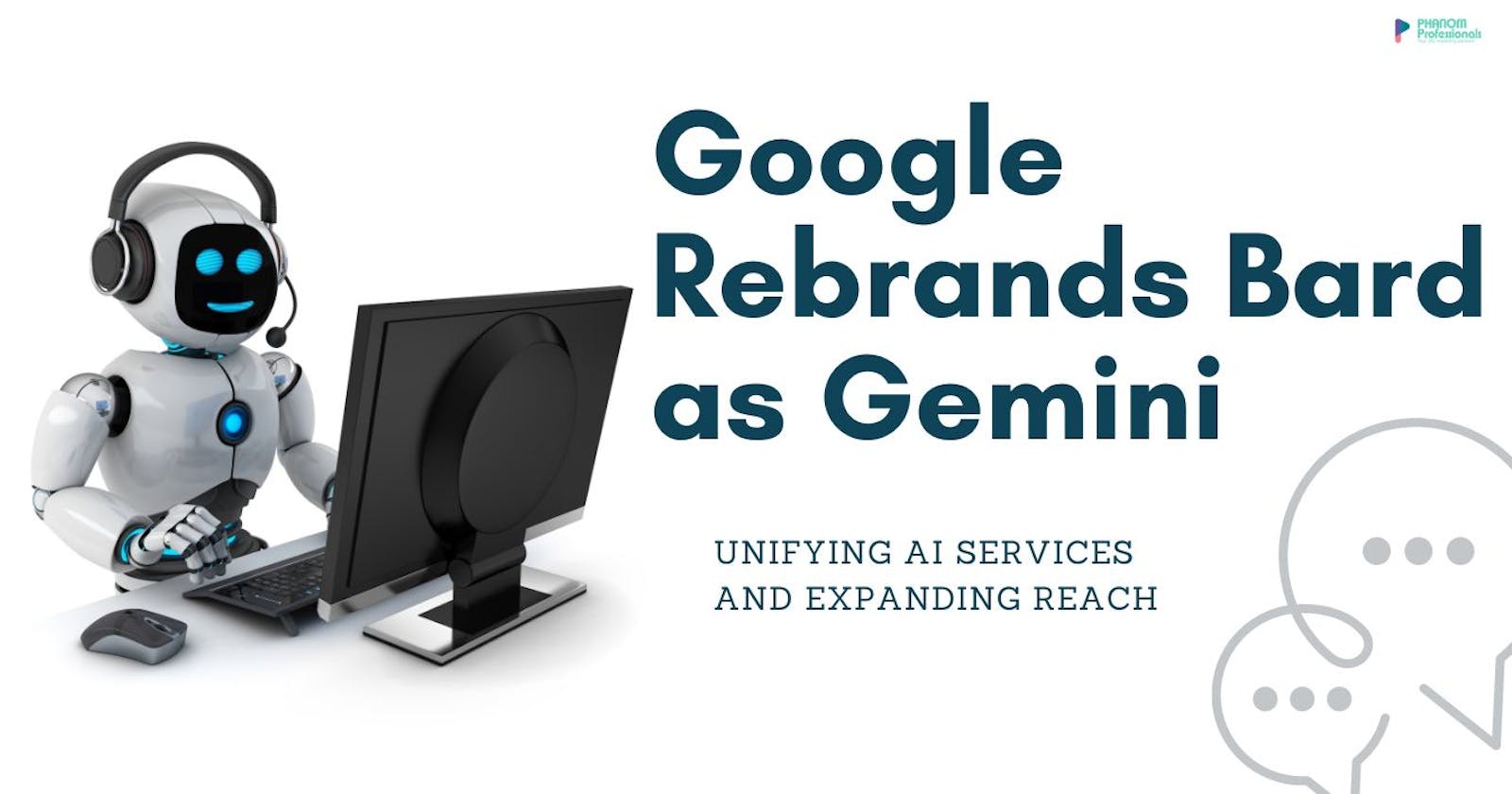Google Rebrands Bard as Gemini: Unifying AI Services and Expanding Reach
Google has rebranded its AI chatbot platform, Bard, as Gemini. The new name and branding are part of a broader effort by Google to unify its AI services and expand their reach. Gemini is a large language model (LLM) that can generate text, translate languages, write creative content, and answer your questions informally. It is still under development, but it has already learned to perform many kinds of tasks, including
I will follow your instructions and complete your requests thoughtfully.
I will use my knowledge to answer your questions comprehensively and informally, even if they are open-ended, challenging, or strange.
I will generate different creative text formats, like poems, code, scripts, musical pieces, emails, letters, etc. I will fulfill all your requirements.
A Unified Platform for AI
Previously, Bard was Google’s primary chatbot platform, while Duet AI handled text-to-speech and other voice interactions. Merging these capabilities under Gemini creates a unified platform offering text, voice, and image processing functionalities. This consolidation simplifies the user experience and positions Google as a one-stop shop for AI.
Gemini Ultra
In addition to unifying its AI offerings, Google is introducing a new premium-tier subscription service called Gemini Ultra. Ultra users will have access to advanced AI features, such as:
The ability to generate longer and more complex text responses
The ability to create custom AI personalities
The ability to access AI-powered tools for productivity, creativity, and more
Expanding Reach
Google is also making Gemini more accessible by releasing a dedicated Android app and integrating it more deeply into the Apple Google app. This will make Gemini available to a broader range of users, regardless of their device or platform.
The Future of AI
The rebranding of Bard as Gemini is a significant step forward for Google’s AI efforts. By unifying its offerings, expanding its reach, and introducing new features, Google is positioning itself as a significant player in the AI space. How Gemini will fare against the competition remains to be seen. Still, there is no doubt that Google is serious about AI and is committed to making it accessible to everyone.
Gemini is based on Google’s Transformer neural network architecture, first introduced in 2017. Transformer models are very effective at natural language processing tasks and have been used to achieve state-of-the-art results on various benchmarks.
Gemini is trained on a massive dataset of text and code, including the entirety of Wikipedia, books, and code repositories. This dataset gives Gemini a broad understanding of the world and allows it to generate text that is both informative and creative.
Google is making Gemini available through various channels, including a web app, a mobile app, and an API. This will allow developers to integrate Gemini into their applications and services.
And The Conclusion Is:
The rebranding of Bard as Gemini is a significant step forward for Google’s AI efforts. It signals Google’s commitment to unifying its AI services and making them more accessible to a broader range of users. Gemini has the potential to be a powerful tool for a variety of tasks, and it will be interesting to see how Google develops and expands its capabilities in the future.
